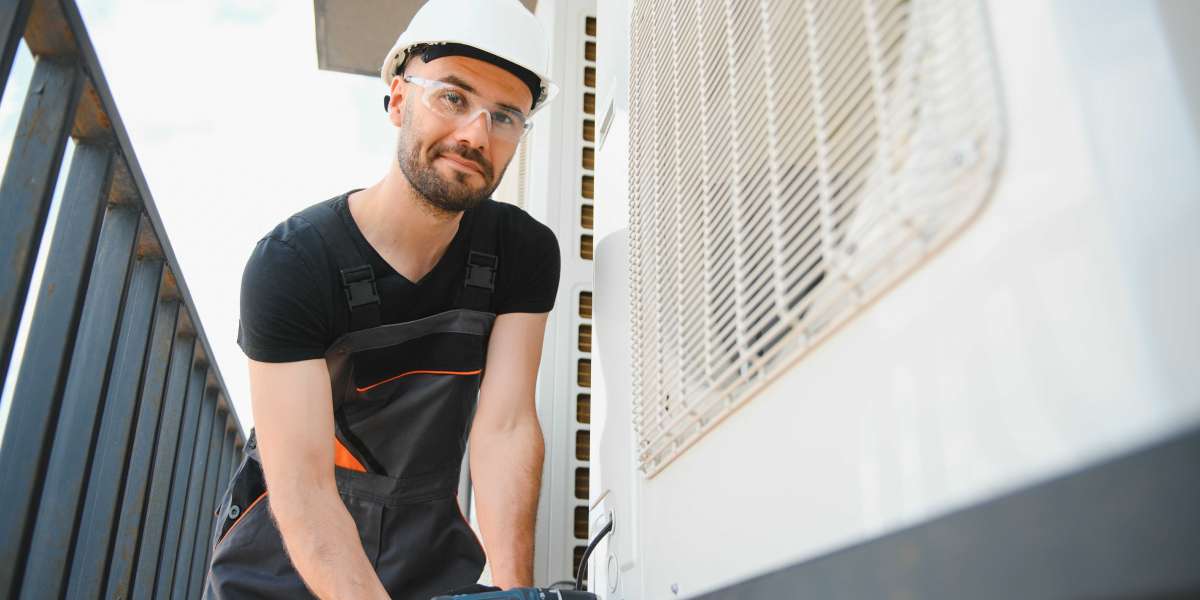Heating, Ventilation, and Air Conditioning (HVAC) systems are essential to maintaining a comfortable environment inside homes, particularly in regions with extreme weather conditions. HVAC installation is a skilled trade that offers steady work, high demand, and job satisfaction for those who enjoy working with their hands and solving problems. Whether you're considering entering the field or looking to hire an HVAC installer for your home, understanding the job's scope is crucial.
In this blog, we'll explore the responsibilities of HVAC installers, the qualifications and training required, career prospects, job growth, and what makes HVAC installation an essential profession in the housing industry.
What Does an HVAC Installer Do?
An HVAC installer is responsible for setting up heating, cooling, and ventilation systems in residential and commercial buildings. The installer ensures that the equipment runs efficiently and safely, providing temperature control and air quality management throughout the home. Some of the primary tasks HVAC installers handle include:
- Reviewing blueprints and layout designs to determine the location of heating and cooling systems.
- Installing furnaces, air conditioners, heat pumps, ductwork, and ventilation systems according to manufacturer specifications and building codes.
- Testing systems for proper operation and making adjustments to maximize efficiency.
- Connecting HVAC systems to electrical and fuel sources like gas, electricity, and refrigerant lines.
- Troubleshooting issues during installation to ensure the system is functioning before the job is complete.
- Maintaining communication with clients regarding system operation, maintenance, and tips for prolonging the life of their HVAC systems.
Qualifications and Training to Become an HVAC Installer
HVAC installation requires a combination of technical knowledge, hands-on skills, and a thorough understanding of safety regulations. Here’s a breakdown of the steps typically required to enter the field:
1. High School Diploma or Equivalent
Aspiring HVAC installers should begin with a solid educational foundation, usually by obtaining a high school diploma or GED. Courses in mathematics, physics, and mechanical drawing can be particularly helpful in building the knowledge needed for future training.
2. Vocational Training or Apprenticeship Programs
Many HVAC installers undergo formal training through vocational schools or community colleges. These programs, which can last between six months to two years, provide instruction in refrigeration, heating systems, electrical wiring, and blueprint reading.
An alternative route is an apprenticeship program, which combines on-the-job training with classroom instruction. These programs are typically run by trade unions or employers and may take up to five years to complete.
3. Certification and Licensing
Most regions require HVAC installers to be certified or licensed, especially for handling refrigerants due to environmental concerns. The U.S. Environmental Protection Agency (EPA) requires certification for technicians working with refrigerants. Additionally, depending on state or local regulations, installers may need to pass exams demonstrating their knowledge of HVAC systems and safety codes.
4. Continued Education
The HVAC industry is constantly evolving, with new technologies and energy-efficient systems regularly introduced. HVAC installers are encouraged to participate in ongoing education and training to stay up-to-date with industry advancements and regulatory changes.
Career Prospects for HVAC Installers
The HVAC installation field is experiencing steady growth, largely driven by increased demand for energy-efficient systems and the need for HVAC replacements in older homes. According to the U.S. Bureau of Labor Statistics (BLS), the employment of HVAC technicians is expected to grow by 5% from 2022 to 2032, which is about as fast as the average for all occupations. This growth translates to approximately 20,200 new jobs each year over the next decade.
Job Security
Because HVAC systems are essential in residential and commercial properties, HVAC installers enjoy a high level of job security. Homeowners frequently replace or upgrade their systems, and with modern emphasis on energy conservation, installing new, efficient units is increasingly necessary. Moreover, extreme temperatures in both hot and cold climates make HVAC installation indispensable in maintaining comfortable living environments.
Salary Expectations
The median annual wage for HVAC installers in the U.S. was approximately $50,590 in 2022, though earnings can vary significantly based on experience, location, and the complexity of the work. Experienced installers or those with specialized certifications may command higher salaries, particularly in metropolitan areas or regions with high demand for HVAC services.
Why HVAC Installation Is Important in Homes
Residential HVAC systems play a vital role in maintaining indoor comfort, improving air quality, and reducing energy consumption. Installing an efficient HVAC system offers several advantages to homeowners:
1. Energy Efficiency
Modern HVAC systems are designed to be more energy-efficient than older models, leading to significant savings on utility bills. HVAC installers help homeowners choose the right system based on the size of the home and local climate conditions. Proper installation ensures the system operates at its highest efficiency.
2. Improved Indoor Air Quality
A well-installed HVAC system not only controls temperature but also filters out pollutants, allergens, and dust particles. This is particularly important for homeowners who suffer from asthma or allergies. HVAC installers ensure that air ducts and ventilation systems are properly sealed to prevent air leaks and maintain indoor air quality.
3. Enhanced Comfort and Temperature Control
One of the primary benefits of a modern HVAC system is the ability to maintain a consistent indoor temperature. Whether it’s the peak of summer or the depths of winter, homeowners rely on their HVAC systems to keep their homes comfortable. HVAC installers are crucial in ensuring these systems are installed correctly and function as intended.
Challenges and Opportunities in HVAC Installation
While the HVAC installation profession offers rewarding work and job stability, it also presents some challenges. The physical demands of the job, such as lifting heavy equipment, working in tight spaces, and exposure to various weather conditions, can be tough. Installers must also stay updated on local building codes and environmental regulations.
However, the profession also provides numerous opportunities for specialization and advancement. Experienced HVAC installers may transition into roles such as:
- HVAC System Designer: Developing customized heating and cooling solutions for residential or commercial properties.
- Project Manager: Overseeing multiple installation projects, managing teams, and ensuring projects are completed on time and within budget.
- Business Owner: Many HVAC installers eventually start their own installation companies, allowing them to control their workload and maximize their earning potential.
Conclusion
HVAC installation is a critical and in-demand job in the housing sector, offering rewarding career opportunities for those interested in skilled trades. From improving energy efficiency to enhancing indoor comfort, HVAC installers play an essential role in maintaining the quality of life in homes. With proper training, certification, and a dedication to continued learning, a career in HVAC installation can be both stable and financially rewarding. As the industry grows, HVAC installers will continue to be an indispensable part of modern residential living, ensuring that homes stay comfortable year-round.








